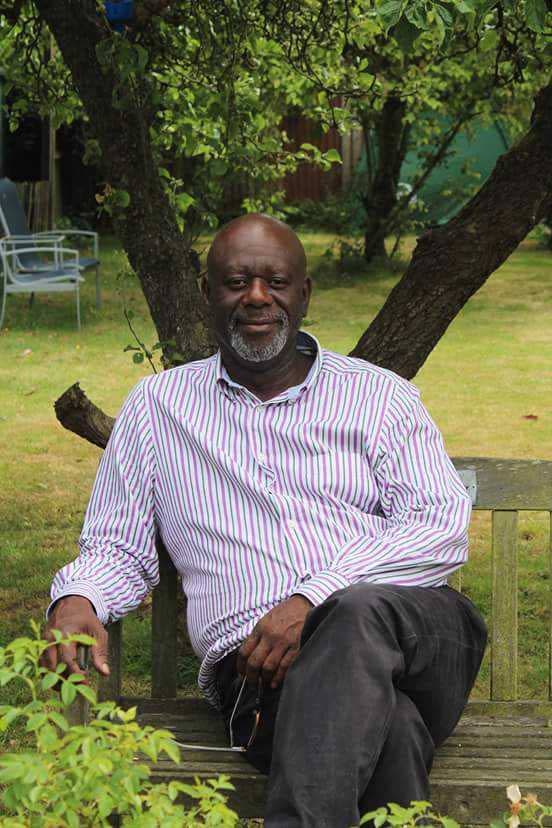Being a first responder to mental health

The World Health Organization (WHO) estimates that depression and anxiety have significant economic impact resulting in a US$1 trillion loss in productivity.
The organisation notes on its website, www.who.int, while, “work is good for mental health... a negative working environment can lead to physical and mental health problems.”
Today, the world observes World Mental Health Day with its theme being, Mental Health in The Workplace. The UK-based NGO, Institute of Leadership and Management, City and Guilds diploma course will introduce to TT and the region the internationally-accredited Mental Health First Responder Leadership Training course.
The course is scheduled to begin in November and, “will be offered to all sectors in TT and the region with special emphasis on the protective services and other first responders, healthcare professionals, educators, the media and youth.”
Michael Hamilton, one of the courses’ UK-based facilitators, a mental health counsellor, coach, community and youth worker, radio presenter and project manager, believes that there is a lot of work yet to be done with mental health in the workplace.

In an interview with Newsday, Hamilton said when asked about the global response to mental health in the workplace: “There is a lot of work to be done to convince employers, governments and other authority that there is a real return on their investment by doing this [having mental health interventions in the workplace]...” He said there was a number of people turning up to work while they are unwell.
“I think often employers and governments push it aside because they think it is something that is going to cost them money...”
Many people he said would often call into their workplace saying they had a really bad flu or stomach ache and would be unable to make it in while many people with mental health illnesses often reported in ill, calling their mental illness something else. He said the problem with that is that people don’t know what is happening nor how to respond to it.
“The problem with mental health is that most people aren’t able to ring out with mental health problems and to be honest about what is going on with them. It, then, means the companies are not able to respond because there isn’t any information. It is not shouldn’t we have mental health days, when people are [already] having mental health days off [and] they are just calling them funny tummy days.”
This, he said, is one of the reasons for the training course, to enable the services to adequately respond to mental health problems. Although Hamilton did not have quantitative analysis of the peculiarities of the TT situation, the anecdotal information presented to him by some of his colleagues and from research done by Dr Yansie Rolston [disability and mental health specialist advisor] showed that there isn’t a "proper acceptance" yet of mental health and need for people to be observant of the difficulties people with mental health issues face.

Hamilton noted that the idea of the course is, “actually to begin a process of dialogue as well as a process of increasing knowledge, increasing skills, increasing understanding but also to increase the kind of dialogue about mental health and develop mental health services...”
The course, being held in November aims to do four things. The first being to increase people’s skills. “Through the course we know that a bit more people would be able to lead in mental health crisis situations. They would have a more informed idea of what to do. Of how to get themselves support as professionals and where to send people too. As well as the ways in which they can operate...that will make the situation better for people that are feeling unwell or in crisis. As well as making the situation better for the service they represent...”
He said the course also aims to develop people’s understanding. “We are talking specifically about trying to break the kinds of myth that people generally hold around mental health. Trying to undo some of the stigma that surrounds it because one of the things we found in anecdotal conversation and Dr Rolston’s research is that even professionals are filled with stigma about mental health...”
The course is aiming to increase knowledge, having its participants come away with a clear understanding of what mental illness is, what mental well-being is, a clear understanding of what different mental illnesses are and to come away with what are the current pathways in TT that can be used to support people if they are in mental health crisis.
Hamilton said the course was also designed to take its participants on a learning journey, that is allowing them to go out into the field, one afternoon, and meet the people that are, currently, the doing the work. “The idea of that is that we begin to connect professionals,” he said. Using the UK’s model as an example, Hamilton said, the discussion centres around having an integrated mental health service, “a recognition that it is not enough for the police to treat people that they come across through their contact or through the criminal justice system. It is not enough just for the health service to deal with people but actually what we need to do is we need the services to begin to integrate and look at how they work together for the best of their clients. We are hoping through the learning journey they learn about each other’s services but also begin to make connection and how they can begin to integrate what they do, in order to have a much more singular pathway for people who need mental help.”
In the UK, he said, support services such as telephone lines for people who might need mental health support have been put in place to address mental health issues in the workplace. The idea of the training, he said, was to create a pool of people who could respond in the environment to mental health issues.


Comments
"Being a first responder to mental health"